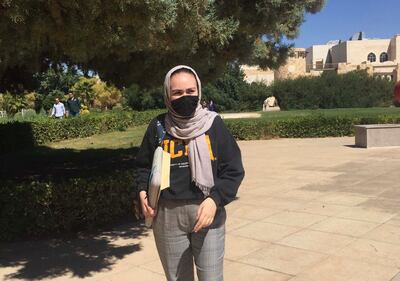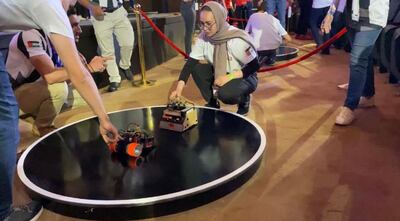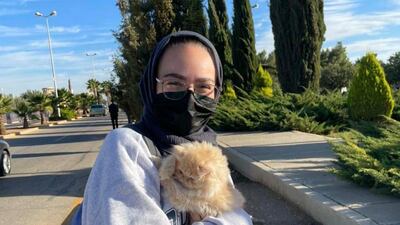The cost of tuition was a major worry for Jordanian student Aya Abu Zaid until she won a scholarship last year from a foundation started by a retired businessman who was the first in his family to go to university.
“The tuition was a disaster,” says Aya, a third-year student of computer engineering at the state-run Jordan University for Science and Technology in the northern city of Irbid.
Her scholarship, from the Kapadia Education Foundation in the US, has given the 20-year old to a chance to complete her bachelor's degree at a time of economic pressure in Jordan and across the Levant.

Aya is one of a tech-savvy generation of young Jordanians of limited means who are eager to improve their situations but lack the educational opportunities more widely available in more advanced nations.
She has a part-time job teaching at a children's academy in Amman and her father, who is a barber, was paying her tuition of $4,500 per year.
It is a huge sum for a family of limited means in Jordan, where annual per capita income is about $4,000.
Local scholarships are available in the kingdom but they are mostly awarded to students whose parents work for the state. Even middle-class families whose income is derived from private jobs struggle to send their children to university.
Aya is the first person in Jordan to receive funding from the Kapadia foundation, which gives priority to students who have done volunteer work and helped others in their societies, particularly women applicants.
Its founder, Pradeep Kapadia, who is from India, started the charity partly because he ran out of money while studying mechanical engineering in the US in the 1970s. The organisation is small but has helped to pay for the education of 500 people in two dozen countries since 2000, using algorithms and software to keep overheads low and minimise bias.
“Everything was done online,” says Aya, describing her scholarship application. “I wrote a motivation letter and explained my situation.”
Since receiving the scholarship, her main cost is the two-hour bus ride between Amman and Irbid. She has kept it down to a manageable $50 a month by arranging her classes so that she needs to travel only three times a week.
“It is a long way back and forth,” says Aya, whose dream is to work in robotics after graduating.

Her background as a volunteer teaching English to children and helping in an old people’s home helped her secure the scholarship.
She also spent 11th grade as an exchange student in Washington state under the Kennedy-Lugar Youth Exchange and Study programme run by the US Department of State, which focuses on countries with a large proportion of Muslims.
As an exchange student, Aya stayed with a single mother and her daughter.
“We became friends and they visited me in Jordan,” she says.
Her volunteer work and exposure abroad may have played a role in getting the scholarship, but it was an 89-year old pharmacist in Jordan who set things in motion.
Georgette Fattaleh, whose pharmacy is next to the barber shop where Aya's father works, was the kingdom’s first female Jordanian pharmacist, and her grandson, Yazan, is the executive director of the Kapadia foundation.
Ms Fattaleh graduated from Damascus University in the 1950s. When she was in her 40s she obtained a master's degree in the United States, and later learnt French.
“She inspires me,” Aya says. “She still goes to her pharmacy every day. She always reads and she still works on improving herself."


